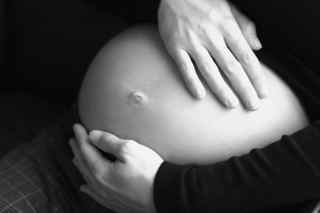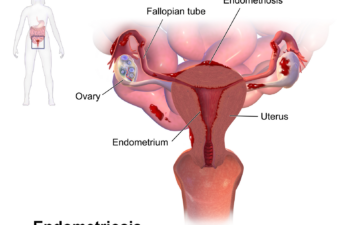Category: Women’s Health
Prenatal supplements fall woefully short in providing crucial nutrition during pregnancy – and most women don’t even know it
Prenatal supplements are not the insurance plan that many doctors believe them to be.
The number of births continues to fall, despite abortion bans
Births continued a historic slide in all but two states last year, making it clear that a brief post-pandemic uptick in the nation’s birth numbers was all about planned pregnancies that had been delayed temporarily by COVID-19.
Arizona’s now-repealed abortion ban serves as a cautionary tale for reproductive health care across the US
Medical students are less inclined to enter the specialty and more likely to avoid training positions, employment or both in states with restrictive or near-total bans. These states also have difficulty retaining existing OB-GYNs.
The Powerful Constraints on Medical Care in Catholic Hospitals Across America
More than half a million babies are born each year in the U.S. in Catholic-run hospitals, including those owned by CommonSpirit Health, Ascension, Trinity Health, and Providence St. Joseph Health. That’s 16% of all hospital births each year, with rates in 10 states exceeding 30%. In Washington, half of all babies are born at such hospitals, the highest share in the country.
Women may realize health benefits of regular exercise more than men
Even when women and men get the same amount of physical activity, the risk of premature death is lower for women, NIH study finds
It’s time for a heart-to-heart about women’s cardiovascular health, unique risk factors and symptoms
Although cardiovascular disease is often considered a disease of men, women are more likely to die from a heart attack when compared with men. This fact often surprises women and even their health-care providers. Many women are not aware that heart disease is a significant health threat to them, but the reality is that five times as many women die from heart disease as breast cancer.
Telehealth makes timely abortions possible for many, research shows
Access to telehealth abortion care can determine whether a person can obtain an abortion in the United States. For young people and those living on low incomes, telehealth makes a critical difference in getting timely abortion care.
There’s a new pill for postpartum depression, but many at-risk women face hurdles
Suicide and overdoses are among the leading causes of maternal death in the U.S.
Viewpoint: Restricting Obese Women From IVF Is Discriminatory
Fertility clinics bar women with obesity from their services, despite the lack of medical evidence for doing so.
US birth rates are at record lows – even though the number of kids most Americans say they want has held steady
Birth rates are falling in the U.S. Is this decline because, as some suggest, young people aren’t interested in having children? Or are people facing increasing barriers to becoming parents?
DOH launchers interactive tool to connect people to Women, Infants, and Children (WIC) Nutrition Program
WIC provides monthly food benefits with an emphasis on healthy grocery items like milk, fruits, and vegetables. The program also assists with health screenings and referrals, nutritional education, and breast/chest-feeding support. WIC is for people who are pregnant, recently delivered a baby, who are breast/chest-feeding, and infants and children under 5 years old. Dads, grandparents, foster parents, or other guardians may also apply for WIC for their children.
Endometriosis: It’s time to change the pattern of pain, stigma and barriers to diagnosis and treatment
One of the significant challenges faced by people with endometriosis is receiving a diagnosis. Patients experience an average delay of 5.4 years from the onset of symptoms to diagnosis. The symptoms are similar to other reproductive health issues (such as polycystic ovary syndrome) or severe period pain, which can be confusing for non-specialist health-care professionals.
Perimenopause usually begins in your 40s. How do you know if it has started?
Perimenopause usually begins in the early to mid-40s. Some people even begin perimenopause earlier, due to premature ovarian insufficiency or medical treatments such as chemotherapy or surgical oophorectomy (ovary removal).
Medical exceptions to abortion bans often exclude mental health conditions
Despite mental health conditions making up more than 20% of maternal deaths and 1 in 5 women suffering maternal mental health conditions, several states explicitly exclude mental health conditions as exceptions to abortion restrictions.
Many women can’t access miscarriage drug because it’s also used for abortions
Doctors say patients have gotten caught up in larger debates around abortion













